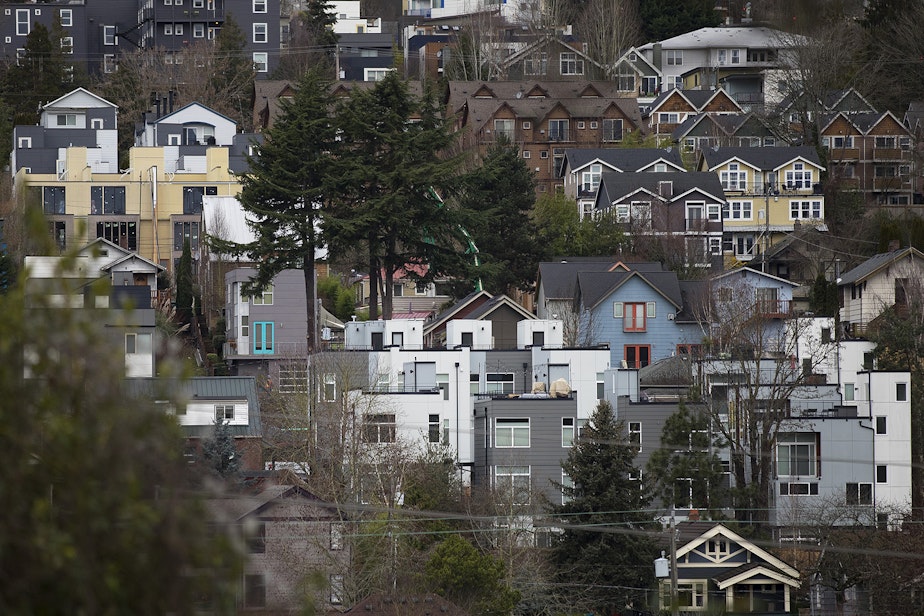King County sees 'crush' of evictions as renters struggle to rebound from pandemic, inflation

The King County Sheriff’s Office received 702 eviction orders in March after Seattle’s winter moratorium lifted on the first of the month. That's more than twice the 317 orders the agency received the previous March, and another indication of the severity of the region’s housing crisis.
“We have seen just an onslaught of cases being filed, and it's quite shocking,” said Ketu Shah, the presiding judge at King County Superior Court. Landlords have filed 812 eviction cases a month so far this year, on average — a 30% increase from last year’s rate, and more than double the 2019 pre-pandemic average rate of 385 eviction cases per month.
RELATED: Eviction or intervention? Debating Washington's eviction program as cases surge
A statewide eviction moratorium at the height of the Covid-19 pandemic, from spring 2020 to fall 2021, slowed that rate to a trickle, which has now turned into a flood.
Among the cases before the court:
Sponsored
- A Des Moines couple facing eviction from their low-income King County Housing Authority apartment after allegedly not paying their subsidized rent of $25 for two months in a row.
- A tenant at Yesler Terrace in Seattle accused of inviting over a friend who stole two residents’ bikes as he left.
- A woman in an affordable housing development in Seattle’s Central District who hasn’t paid rent or utilities since March 2020. The $31,000 she owes was reduced last year and broken down into a payment plan, but the landlord said she still hasn't paid.
“We're finally seeing the full effects of the Covid-19 pandemic, coupled with inflation, so that's really affecting our most vulnerable and low-income folks,” said Ali Kingston, who manages the eviction defense program at the state Office of Civil Legal Aid.
RELATED: King County Council considers housing development for middle-income residents
Although the state guarantees legal representation for many low-income renters facing eviction, attorneys are now stretched thin, Kingston said.
“We are asking the Legislature for additional attorneys, specifically for King County, so that we can ensure that we can meet that demand as cases increase,” she said.
Sponsored
Kingston said the eviction defense program is now triaging cases to prioritize the most vulnerable tenants, including those with children and people in subsidized housing.
The county started pulling Superior Court judges off of their usual assignments part-time last year to work through a backlog of eviction cases that could mean a nine-month wait — or longer — before a hearing, Judge Shah said. Two new judges who joined the court last month now handle a dedicated eviction calendar, Shah said, which “helped make these cases go a little bit faster" — about three months before a hearing, on average.
Eviction cases do not usually result in forcible removal by sheriffs. About 70% of those filed in court resolve before a hearing, Shah estimated. Even when a final eviction order is issued, some tenants agree to move out in exchange for no eviction appearing on their rental history.
RELATED: For these seniors, DOGE's affordable housing pause means suffering longer without AC
Still, the cases are far more likely to predominantly involve people on the margins of society — those with minimal resources, limited English skills, people with mental illness and other disabilities. A 2019 analysis by the King County Bar Association found that Black people comprised 6% of the county population, but faced 34% of all eviction filings.
Sponsored
Those forced from their homes, typically because they're behind on rent, will now need to find a new place to live in one of the most expensive places in the country.
As Shah and his fellow judges grapple with the “crush” of new eviction cases, he said, “We’re very concerned.”




